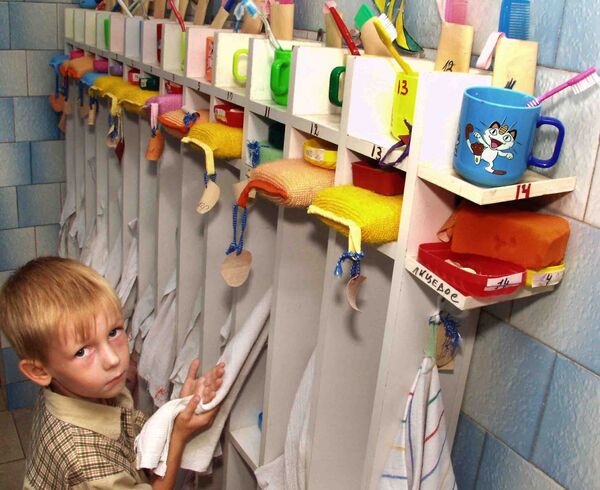WASHINGTON, September 18 (By Maria Young for RIA Novosti) – Under new legislation scheduled to be introduced in Washington Thursday, children adopted in the US will have greater oversight and far more post-adoption scrutiny designed to quickly identify abuse and neglect and prevent child trafficking, according to terms of the new bill provided to RIA Novosti on Wednesday.
“Around the world, millions of children are growing up without parental care, in institutions or worse,” said a press release from US Sen. Mary Landrieu, co-sponsor of the legislation and chairwoman of the nonprofit Congressional Coalition on Adoption Institute which advocates for orphans and foster children around the world.
“American law should reflect the human truth that children need families,” the release said.
The proposed legislation, called The Children in Families First (CHIFF) Act, establishes a new Bureau of Vulnerable Children and Family Security under the US State Department and expands US aid beyond the food and medicine already being provided to children in need around the world, with a new focus on finding families for those without parents.
It also streamlines the international adoption process for American families and develops a process for reviewing international adoptions.
Though details were scant in advance of the bill being filed, CHIFF appears to address some of the issues at the center of an adoption standoff between Washington and Moscow.
More than 60,000 children from Russia have been adopted by Americans since the early 1990’s, according to figures from the State Department.
At least 20 of them are known to have died in the care of their new parents, and Russian officials have said they suspect many more children have been abused.
Moscow has also complained that the US system makes it virtually impossible for them to check on the treatment of children after adoption.
Those concerns in part drove Russian officials to ban all adoptions of Russian children by Americans as of Jan. 1, a move that left hundreds of adoptions already in progress in limbo.
In the months since the ban was imposed, new claims of Russian orphans being abused by their US parents have surfaced.
And a recent investigation by Reuters exposed the little-known practice of “rehoming,” in which some adoptive US parents, overwhelmed and unprepared for the severe emotional and behavioral problems some of the children displayed, quietly handed them over to new guardians they found on the Internet.
Two of the adoptees featured in the report were from Russia.
“Not everyone is cut out to adopt, not even with the strongest of faith or the best of intentions. And not every child is a good match for every family, no matter what some people say,” said Andrea Roberts, founder of Reece’s Rainbow, an organization which facilitates international adoptions for special needs children.
But if guardians or adoptive parents aren’t trained or prepared, “that is a recipe for disaster,” she said in a statement to RIA Novosti.
On Wednesday there was what could be seen as the first glimmer of hope for a solution to the US-Russia adoption impasse.
And it came from an unexpected source: Pavel Astakhov, Russia’s child rights commissioner, a strong supporter of the adoption ban and an outspoken critic of the US adoption system.
Russia, he said during a press conference in Moscow Wednesday, has a system for providing training to adoptive families and is prepared to teach Americans how to create and maintain such a service.
“America has a troubled system. Advertising children and placing them in families through social networks – this is something outside the jurisdiction of any specific state. This is the kind of problem that they are running into and therefore we, too, are running into,” Astakhov said.
“We want to help and we have experience of our own,” he added.
A number of US lawmakers contacted by RIA Novosti had not yet seen the remarks and did not immediately respond to a request for comment.
The CHIFF Act must be approved by both houses of Congress and signed into law by US President Barack Obama before it can be implemented.


